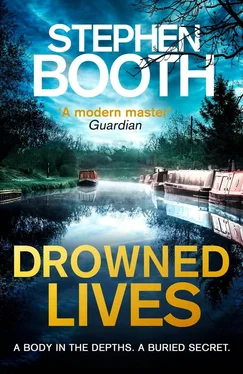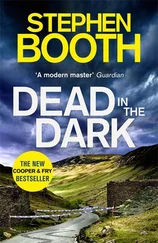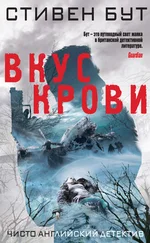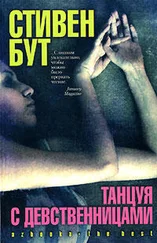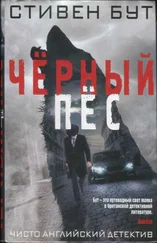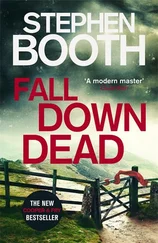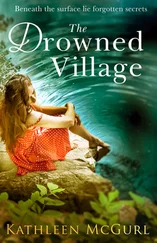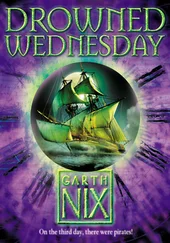‘Well, Dad, you taught me about secrets. You said secrets were never to be told. I didn’t realise you were keeping other secrets too. Did they eat away at you like they did at me?’
Oh yes, there had been so many secrets. Not only the existence of my grandfather’s brother, which had been kept from me, but why Great-Uncle Samuel had changed his name. And since I’d read Samuel’s letter, I had an uneasy impression of a great, yawning hole in my family’s history where other mysteries lurked. I thought I might find some justification for what has been done to us. But I found none , he’d written. But what had been done? And who did he mean by us ? The Buckleys? Yet Samuel had tried to distance himself from the Buckleys, to the extent of taking another name. Vengeance leads only to bitterness. Evil breeds evil .
I shook my head in bafflement. I knew all about betrayal and bitterness. But surely Samuel couldn’t mean me. He was talking about something that had happened much longer ago. He’d mentioned the year 1800. Two hundred years of bitterness and vengeance? It hardly seemed possible.
I’d been determined to look ahead to the future, but somehow the past kept intruding. Now I had to acknowledge that I’d been fighting a losing battle. The only way I was likely to have a future was by exploring the past, thanks to a ridiculous bequest from a long-lost relative. Despite my best efforts to avoid it, I’d have to confront the history of my own family. I’d have to open my eyes to what had formed me, the factors making me what I am.
I looked again at my father’s grave. Yes, bitterness and resentment could last for two hundred years, if you lived that long. But it couldn’t survive your death, could it? The stuff that Samuel had written about genetic memory was nonsense. I hadn’t inherited any memory from my father of a great wrong done to our family. Quite the opposite. If such wrongs had existed, he’d deliberately kept them from me.
Another picture of my father rose in my mind, unbidden. It was the image of him that I least wanted to see, the one I’d never been able to remove from my thoughts since those days as a child, when the meaning of evil had been imprinted on my memory. It might not be quite what Samuel had meant, but my father had passed on the meaning of betrayal, the taste of bitterness, the desire for vengeance. He’d done it in his own peculiar way. But he’d certainly done it effectively. Standing there by his grave, I knew that the feelings he’d planted in me had merely lain dormant, almost unacknowledged, for most of my adult years.
Perhaps Samuel was right, then. I couldn’t take revenge on my father. But if the evil could be explained, its power might be destroyed. If evil had bred evil, who had planted the seed?
I decided to assess the facts logically. Being realistic, what evidence did I have that the old man I’d met at Fosseway really was my Great-Uncle Samuel? True, I had the document Mr Elsworth had given me, testifying to Samuel’s name change. That seemed to give him some form of official status as a Buckley, even if he’d turned his back on the name. And why should he lie? I couldn’t see what he might gain from pretending to be my relative.
And, of course, there was that photograph. I’d dug it out again, to reassure myself that it existed. George and Samuel, June 1925 . If I’d ever seen it before, I couldn’t remember it. But then, I’d never taken much interest, and my father hadn’t been one to reminisce about his family.
It was only my mother who ever brought out the old photos, on the occasions when in-laws were gathered and small huddles of grey heads had formed round the table to smile at the boyish faces of the Buckley men. I could have had no reason for assuming that the Samuel pictured with my grandfather was anything other than a childhood friend. How could I have guessed it was his brother?
I pictured Samuel Longden as I’d last seen him, walking painfully into the dusk on the corner of Conduit Street, pausing perhaps to lean on his stick. In my mind, his face was etched with pain and betrayal. In Castle Dyke, he didn’t hear the car that descended so fast from the ramp of the car park. Perhaps it didn’t have its lights on as it entered the street, and the driver failed to see Samuel in the dark, until it was far too late. I could see the impact of metal on a fragile body, the jerking of limbs, like a dummy tossed into the air. And then followed the sounds, the sickening thump of impacted flesh, the breaking of bones.
By the time Samuel hit the ground he would already be dying or dead, no more than a sack of clothing dropped on the pavement. I thought I heard a tinkle of glass from a shattered headlamp and the revving of an engine that covered a final cry from a dying man’s throat. I smelled the blood from his cracked skull. I could almost feel the agony of his pulverised body. ‘Multiple internal injuries’. An easy phrase to say. Not so easy to understand what it meant.
And then there were the actual memories. That deep, racking cough from someone nearby, the car I’d glimpsed accelerating away, and the street falling quiet. Only Samuel would have remained, still and lifeless, his body broken, his stick smashed in the gutter.
But the picture in my mind wasn’t complete. There were crucial details missing, specific features I couldn’t fill in. Who else had been in that street? What colour was the car, and what make? And whose face had been behind the windscreen?
I called again at the Fosseway restoration site. There was no Waterway Recovery Group work party this weekend, just the usual collection of volunteers, the dedicated few who came out month after month to wield their shovels and trowels.
In the last two weeks a new culvert had been installed to take a brook under the canal below Fosseway Lock. Sections of the old cast iron culvert, full of silt, had been removed, and most of the spoil had been taken to backfill behind the abutment. Several of the massive coping stones from the lock walls had been recovered too. They weighed up to four tonnes each, and it took a crane and a lorry to put them back into position. But there was much more brickwork to be restored.
Today, I could see that a JCB had exposed the footings of the bridge and the water channel. But disaster had struck when lumps of masonry got stuck in one side of the trailer, causing a wheel to sink into the soft ground and the trailer to keel over. A cluster of restoration workers were gathered round trying to free it from the quagmire.
One of the ways the Trust had been raising money was through a scheme for supporters to sponsor the steel pilings that strengthened the bank. The piles were stamped with the names of sponsors. I ran my eye over a few while I waited. They said ‘Emma and Sam’, ‘Panzer Cat’, ‘Tony’s Pile’ and ‘The Woollibotts’. A working party had been using a borrowed piling hammer, and claimed to have driven seventy-five piles in a single weekend.
Andrew Hadfield was among the workers, with a hard hat pushed high on his head. I finally managed to attract his attention from behind the safety fence and beckoned him over.
‘Andrew, I’ve got something I’d like you to have a look at.’
‘Oh?’
‘It’s in my car. Can you spare a minute?’
‘This sounds interesting.’
We sat in the Escort, and I took the box off the back seat and placed it in his lap. Since my visit to the solicitor’s office on Friday, I’d spent what seemed like hours staring at that box and wondering whether I should smash it open. I’d even brought a hammer and chisel from the garage with the intention of starting the job. But I’d laid the tools down again. I couldn’t bring myself to damage the perfect grain in the wood, or to destroy something that had lasted intact for so long. It would have felt like sacrilege.
Читать дальше
